Pastor’s Word
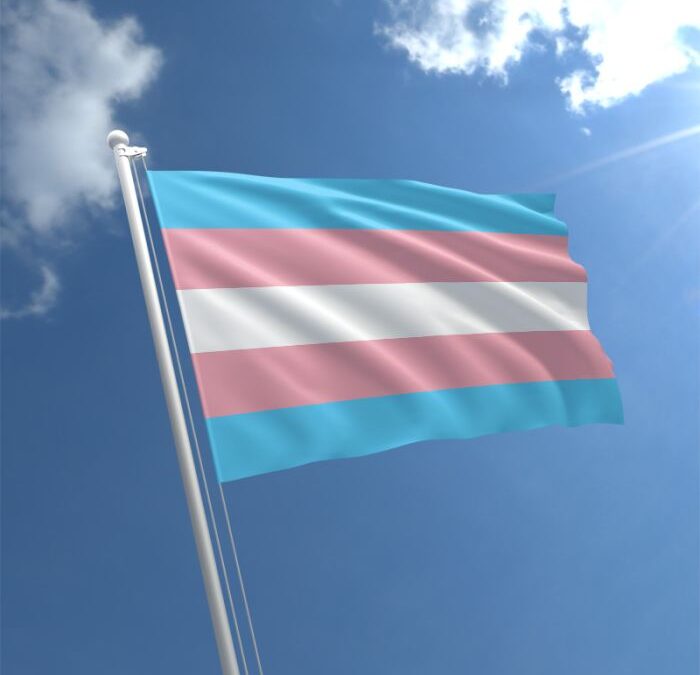
I Am Troubled
by Rev. Dale Azevedo, Sr. Minister
I Am Troubled
Last night, I went to bed troubled.
I have two rules at bedtime:
- Don’t look at your church email before going to bed.
- Don’t read the news before going to bed.
Doing either of these tasks before going to bed rarely, if ever, ends well.
And of course, I periodically break these rules. Last night I broke the latter. I read the news. And the result was predictable. I was deeply upset.
The news item that triggered me was an AP report on Governor DeSantis expanding the Parental Rights in Education Act, which is more commonly known as the “Don’t Say Gay” bill. That bill greatly restricted schools and educators from discussing sexuality and gender issues with students in kindergarten through third grade. This report indicated that DeSantis is working with the state Board of Education and state Education Department to expand the bill to also cover grades 4-12.
How can schools not cover sexuality and gender issues with teenagers in this day and age when teen suicide and mental health issues are only increasing year over year. Gender and sexuality are, and have always been, at the forefront of teen stress and mental health (even when all those issues were still tightly locked away in the closet).
I don’t understand how such a large portion of our population chooses to deny that queer folk exist and always have. Ostracizing them, despising them, or discriminating against them does nothing to make our society a better, healthier place. It only causes pain, suffering, and historically, violence.
Of course, none of this is new. The news article told me nothing I didn’t already know or haven’t experienced in my life. Humanity is hell bent on alienating and dehumanizing the sections of our own population that are most vulnerable. It is our human condition. It is our sin. This goes for racism, antisemitism, Islamophobia, sexism, and anti-immigrant sentiments that are all prevalent in our midst.
What set me off last night wasn’t that this was new. It was my feeling of impotence.
I feel incapable of enacting change, of making a difference. I have spent my life trying to make the world a more loving, more compassionate place. And it’s only gotten worse.
That is why I was so upset last night. I cannot impact what is happening in Florida. I cannot impact what is happening on a national scale. I cannot impact what is happening globally. Now, I know there are those who disagree with that fatalistic attitude, but I wouldn’t have listened to you last night. It all just felt hopeless.
This morning I woke up with a thought. In my fatalism I thought, “I can’t make a difference in the big picture. I’ve been trying my whole life and things are only worse than when I began. I can only impact my immediate sphere of  influence. What difference does it make if our church is a safe place for society’s outcasts or downtrodden when the world is still so hostile and violent toward them?” And that’s when it hit me:
influence. What difference does it make if our church is a safe place for society’s outcasts or downtrodden when the world is still so hostile and violent toward them?” And that’s when it hit me:
Our church IS a safe place for some of society’s more vulnerable people. Our church NEEDS TO BE a safe place in the midst of the harsh and challenging world. If the world isn’t going to change for the better, we need to double-down on our efforts.
Is having rainbow doors outside church enough?
Is having LGBTQ+ leaders and teachers in our congregation enough?
Is using inclusive language and celebrating God’s amazing diversity in our community and with our children enough?
Or is there something more we can be doing to live out our identity as an Open and Affirming congregation? Is there more we can do to alert the broader community that we ARE a safe place for those who feel vulnerable? Is there more we can do to live out this calling MORE FULLY in our actions and not just in our words?
There must be.
And maybe the time is now to do it.
I Am Going to Take Action
This is what I am going to do:
- Last spring Racquel and I discussed starting a support group for parents of trans children. Do you know we have at least 3 families in our church whose children self-identify as
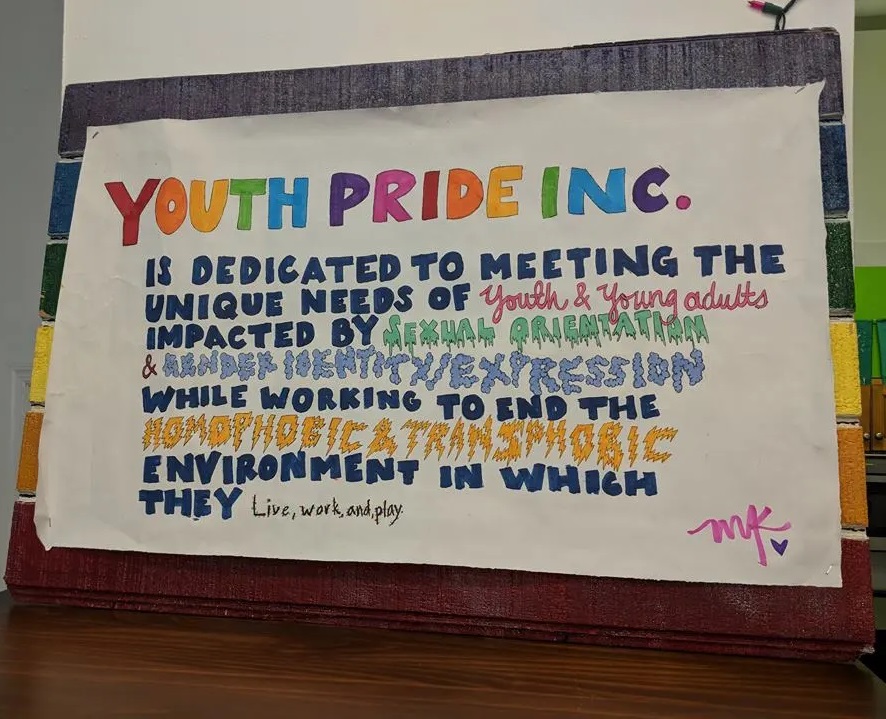 part the trans community? Yet somehow 10 months have passed and nothing has happened. Today, I am committing to exploring this idea further and see if there is a healthy and effective way we can move forward in supporting families with trans children.
part the trans community? Yet somehow 10 months have passed and nothing has happened. Today, I am committing to exploring this idea further and see if there is a healthy and effective way we can move forward in supporting families with trans children. - Did you know there is only one nonprofit organization in Rhode Island specifically dedicated to meeting the needs of LGBTQIA+ youth? It’s named Youth Pride Inc. Today, I am committing to reaching out to Youth Pride Inc. to see how we might be able to partner in this vital ministry. They have resources and leaders that I (we?) can learn from.
- We don’t have an Open and Affirming Team anymore. That team came together and performed incredible work helping our church grow into being the welcoming church we now are. But they disbanded years ago. Today I am committing to reestablishing an Open and Affirming Team in the church that will seek to explore new ways we can be truly Open and Affirming in our faith community in all the glory that designation stands for. If you are interested in joining me in this endeavor, fire off an email to me.
What does any of this have to do with Jesus?
I almost didn’t write this blog. I had another blog already in mind that focused on our recent explorations into overhauling the governance structure of our church. That one would have been easy to write. This one felt “wrong” because it doesn’t directly focus on Jesus, or faith, or church. It focusses on the lives of LGBTQ+ youth.
But in the end, I decided to go ahead with this blog. Because, to me, this IS at the core of our faith. How many times does God command the Israelites care for the most vulnerable in their midst? More than I can list here. How many times did Jesus stop what he was doing to help those in need or care for someone who was hurting? It is the heart of his ministry! In Bible times, these folks were the disabled, the widows, the children, the sick, the immigrant, the foreigner, and the poor. It’s amazing that 2000-3000 years later these groups are STILL at risk. Only the designation has now grown to include those of different faiths, different skin colors, different sexual orientations, or gender identities. Anyone we can put down, anyone we can count as “other”, anyone we can blame for society’s ills (except ourselves), we demonize and subjugate. God doesn’t stand for that. Jesus wouldn’t accept that. And yet so many do it in His name.
So, in the end, to me this IS a matter of faith. This IS a matter of church, and God, and Jesus. Because it is what God calls us to do.
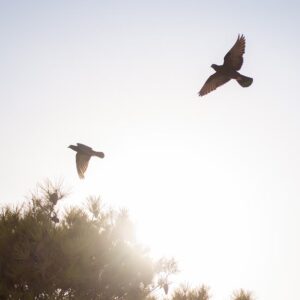 And so, I will do.
And so, I will do.
Breaking the Rules
I said at the start that anything good seldom comes from breaking my bedtime rules. It appears I was wrong about that. If I hadn’t broken my rules last night this blog wouldn’t have happened. If I hadn’t opened up the AP app last night, I wouldn’t be taking these actions. But I did. And I am.
So, maybe I was wrong. Maybe something good did come out of breaking the rules. Maybe the Spirit was at work then…and is now…

What Does God Say About Disabilities?
by Rev. Racquel Ray
Assoc. Minister of Congregational Life
We know the familiar stories of miraculous Biblical healing. God “restored the fortunes of Job and gave Job twice as much as he had before” (Job 42:10). The prophet Elijah healed the widow’s son. Jesus healed the woman with the issue of blood, the paralytic, the blind man, lepers, demoniacs, and more. Scriptures say, “large crowds came to Him [Jesus], bringing with them those who were lame, crippled, blind, mute, and many others, and they laid them down at His feet; and He healed them” (Matthew 15:30).
Biblical customs of holiness defined differences between clean and sacred and unclean and profane. Disability was prescribed as profane or unclean and was a result of sinful behavior. The disciples asked Jesus, “Rabbi, who sinned, this man or his parents, that he was born blind (John 9:2)? Having a disability, such as blindness, was seen as a result of sinful behavior and could be avoided with righteousness. Further, it was understood that the sins of a parent could be seen in the disabilities of the children.
Theologians in the middle ages such as Gregory of Nazianzus claimed that both abled and disabled people had equal portions of the divine image and therefore everyone could be healed. This theology made space for bringing the sick, disabled, and marginalized into the Christian community by creating orphanages, respite homes, and hospitals. However, it also created a dynamic binary of “abled” and “disabled” that has permeated churches and society for hundreds of years.
 Spiritual revival in our current generation is well documented. Dennis J Bennett’s book Nine O’Clock in the Morning[i], Healing[ii] by Francis MacNutt, PhD, and The Healing Light[iii] by Agnes Sanford document a season of church revival and Spiritual and miraculous healing. Disability and illness are treated as a problem to be healed. Perhaps the faith of the healed or the faith of the healer were strong enough to merit God’s grace and miracles. Often, when healing doesn’t occur in these instances, perhaps the faith of either party is questionable? The theodicy of God is questioned; ‘why does suffering exist’.
Spiritual revival in our current generation is well documented. Dennis J Bennett’s book Nine O’Clock in the Morning[i], Healing[ii] by Francis MacNutt, PhD, and The Healing Light[iii] by Agnes Sanford document a season of church revival and Spiritual and miraculous healing. Disability and illness are treated as a problem to be healed. Perhaps the faith of the healed or the faith of the healer were strong enough to merit God’s grace and miracles. Often, when healing doesn’t occur in these instances, perhaps the faith of either party is questionable? The theodicy of God is questioned; ‘why does suffering exist’.
When Christians face illness, we often hear poor theological explanations such as Paul’s encouragement to the church in Corinth. Paul writes, “No testing has overtaken you that is not common to everyone. God is faithful, and he will not let you be tested beyond your strength, but with the testing he will also prove the way out so that you may be able to endure it!” (1 Corinthians 10:13). To paraphrase, God will not give us more than we can handle. This also is not helpful to the one who is suffering.
While we love people who identify as differently-abled, but we don’t actually make our church spaces available by being accommodating and accessible. Many churches don’t have accessibility for folks with mobility assistance devices. Think of the elevette in our church. We can offer assistance to church guests but, will it fit a large wheelchair? Can a person with differences turn their wheelchair around in the elevette? Or bathroom? Can church goers access our spaces without assistance? Is our signage clear? Do our automatic doors work?
How about learning differences? Visual impairment? And hearing impairment? Don’t church services assume that folks can sit still for an hour, read, listen, sit and stand as custom prescribes?
 Recently, I’ve been confronted with the reality that I have permanent nerve damage from a dental procedure. I’ve been in speech therapy for about two years to work around a profound slur and drooling. A few months ago, I learned that my ability to swallow was also affected. During a recent Communion service, I noticed that I was having trouble swallowing the communion bread. I worked with my healthcare team, Rev. Dale, and our Deacons to figure out an accommodation. We now have a glass of water on the table with the sacred communion elements. After I eat the bread, I will need to take several gulps of water to wash down the bread.
Recently, I’ve been confronted with the reality that I have permanent nerve damage from a dental procedure. I’ve been in speech therapy for about two years to work around a profound slur and drooling. A few months ago, I learned that my ability to swallow was also affected. During a recent Communion service, I noticed that I was having trouble swallowing the communion bread. I worked with my healthcare team, Rev. Dale, and our Deacons to figure out an accommodation. We now have a glass of water on the table with the sacred communion elements. After I eat the bread, I will need to take several gulps of water to wash down the bread.
I wasn’t ready to share my disabilities publicly because of the lack of public understanding around disabilities based in millennia of poor theology. However, how many of our members, friend, guests, and family members are experiencing similar challenges?
 Rather than ignoring my differences, I have learned to accept them and learned to advocate and accommodate. There are many members of the congregation and community with many forms of differences. With our youth, I refer to them as ‘super-powers’. What does it look like for our congregation to embrace folks with differences? Do we accept water on the Communion table? Do we update our elevette and signage? Do we build on the good work already begun with hearing assistance, large print bulletins, and ramps and doors?
Rather than ignoring my differences, I have learned to accept them and learned to advocate and accommodate. There are many members of the congregation and community with many forms of differences. With our youth, I refer to them as ‘super-powers’. What does it look like for our congregation to embrace folks with differences? Do we accept water on the Communion table? Do we update our elevette and signage? Do we build on the good work already begun with hearing assistance, large print bulletins, and ramps and doors?
While healing is possible, not everyone is healed. And how we accept, accommodate, and provide access for differences can mean broadening our understanding of opening God’s doors to all. In the case of Jesus and the blind man, “Neither he nor his parents sinned,” Jesus answered, “He was born blind so that the works of God might be displayed in him.” (John 9:3). May the works of God be visible among us as we learn to accommodate and accept our differences.
[i] (Bennett, 1970)
[ii] (Francis MacNutt, 1974, 1999, 2002)
[iii] (Sanford, 1947, 1972)

The Who, What, When, Where, How, and Why of Lent
by Rev. Dale Azevedo, Sr. Minister
Who celebrates Lent?
Lent is a season in the Christian Year. As such, it is celebrated by Christians. However, not all Christians celebrate Lent. Orthodox Christians, Roman Catholics, and many Protestants celebrate Lent. Mainline Protestants (Methodists, Lutherans, Episcopalians, Presbyterians, and such) are the most likely churches to celebrate lent. Baptists less so. And non-denominational, Pentecostal, or mega-churches, are even more unlikely to recognize the season. These latter communities are less likely to adhere to the Christian year at all (outside of Christmas and Easter), let alone the specific season of Lent.
What is Lent?
As I stated above, Lent is a season in the Christian year. It encompasses the 40 days leading up to Easter. And it is a season of self-examination, penitence, prayer, fasting, and works of charity.
Lent generally begins on Ash Wednesday. I say, “generally,” because in Orthodox traditions Lent begins on Clean Monday. Regardless of when Lent begins, it always lasts 40 days. However, each tradition counts those 40 days differently.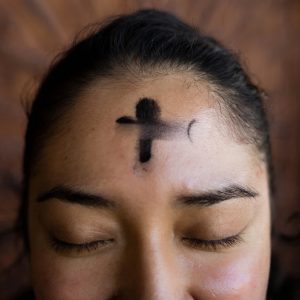 In Protestant churches, Lent is the 40 days before Easter, not counting Sundays. In the Catholic Church, Lent is the 40 days before Easter, not counting Holy Week. And in the Orthodox tradition, it is the 40 days from Clean Monday until Good Friday. Of course, this is further complicated when we take into account that the Orthodox church celebrates Easter during a different week than its western counterparts. No wonder we can’t keep all this straight!
In Protestant churches, Lent is the 40 days before Easter, not counting Sundays. In the Catholic Church, Lent is the 40 days before Easter, not counting Holy Week. And in the Orthodox tradition, it is the 40 days from Clean Monday until Good Friday. Of course, this is further complicated when we take into account that the Orthodox church celebrates Easter during a different week than its western counterparts. No wonder we can’t keep all this straight!
When did Lent become a thing?
Lent was not always a season or practice in Christianity. There are references early in Christian history of a time of fasting before Easter. However, these observances were much shorter, lasting either all of, or only a portion of, Holy Week. There are also references to a time of preparation for new initiates into the church in the days or weeks leading up to Easter. However, scholarship in recent years has drawn these references into question. Either way, while it may not have resembled our season of Lent, there does appear to have been some time of personal preparation and spiritual observance in the days leading up to Easter.
The oldest reference to a 40 day fast period prior to Easter is found in the records of the Council of Nicaea (325 C.E.). These references imply that such a practice was already taking place in some communities by this time and not an original decree of the council. Based on other historical records, it is 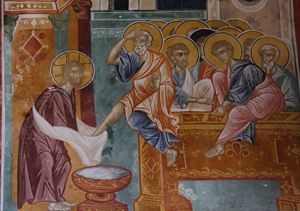 commonly believed that by the end of that century most Christian communities were observing some kind of fast in the 40 days leading up to Easter.
commonly believed that by the end of that century most Christian communities were observing some kind of fast in the 40 days leading up to Easter.
Finally, the word Lent is believed to be derived from the Old English word lecten, which is a reference to the season of spring. It is surmised that since the 40 days of fasting took place during spring in the English speaking world, a shorter version of the word lecten, Lent, eventually became associated with the practice.
Where is Lent practiced?
Lent is practiced wherever Christians are, both globally and personally. There are Christian communities around the world that observe the season of Lent. It may be more rare to find Christians in the far east than here in the west, but they are there. And undoubtedly, some of them celebrate Lent. Individually, Lent can be observed wherever we are. We observe Lent in church, in our homes, and all throughout our daily lives (work, school, running errands, etc.). Lent is not restricted to sacred places or times. Depending on how we celebrate Lent, it can be anywhere and everywhere.
How is Lent observed?
Lent is observed in many ways. As I mentioned earlier it is a season of self-examination, penitence, prayer, fasting , and works of charity. For recent generations there has been a common practice of “giving something up” for Lent. This can be chocolate, cursing, alcohol, etc. This practice serves two purposes. First, it harkens back to the days of fasting for whole meals. When we give something up, we miss it, and that feeling of loss reminds us both of Christ’s suffering and of our desire to draw nearer to God. It serves as a simple and constant reminder to stop, pray, and think of God. Second, giving something up ought to help cleanse us physically or spiritually. We are better people if we give up something that otherwise would drag us down.
, and works of charity. For recent generations there has been a common practice of “giving something up” for Lent. This can be chocolate, cursing, alcohol, etc. This practice serves two purposes. First, it harkens back to the days of fasting for whole meals. When we give something up, we miss it, and that feeling of loss reminds us both of Christ’s suffering and of our desire to draw nearer to God. It serves as a simple and constant reminder to stop, pray, and think of God. Second, giving something up ought to help cleanse us physically or spiritually. We are better people if we give up something that otherwise would drag us down.
However, “giving something up” isn’t the only way to observe Lent. In recent decades I have heard a lot more about people “taking things on,” instead. This can mean taking on a new exercise routine or diet, taking on an act of charity or helping someone out each day, or taking on practice of daily prayer or scripture reading. The options for taking things on are just as endless as the options of giving things up, but the end result is the same: finding an observance for the season that not only helps you grow as a person, but also draws you closer to the God you love.
This leads us to our final question…
Why do we celebrate Lent?
The main purpose of Lent is to deepen our relationship with God. All of the practices we undertake, all of the things we “give up,” all of the observances we “take on,” should all lead us to a closer sense of God with us. God wants nothing more than to live in communion with us. Yet, so much of what we do in life  pushes God away. We make poor choices. We neglect ourselves and our neighbors. We chase after false idols. And in the end, we feel bad; physically, emotionally, and spiritually. Lent is about helping us to feel good again, on all these levels. Lent is about renewal and rebirth. Only it acknowledges that before we can feel that, before we can experience that, we first need to prepare ourselves for it. We need to cleanse ourselves, removing so many of the things that drag us down and providing room for the things that lift us up. So if you are struggling this season, or even if you just want to feel even better than you already do, consider observing a holy Lent. Consider making something new a part of your life this season. Consider joining us for worship and seeing what blessings God has to offer. Amen.
pushes God away. We make poor choices. We neglect ourselves and our neighbors. We chase after false idols. And in the end, we feel bad; physically, emotionally, and spiritually. Lent is about helping us to feel good again, on all these levels. Lent is about renewal and rebirth. Only it acknowledges that before we can feel that, before we can experience that, we first need to prepare ourselves for it. We need to cleanse ourselves, removing so many of the things that drag us down and providing room for the things that lift us up. So if you are struggling this season, or even if you just want to feel even better than you already do, consider observing a holy Lent. Consider making something new a part of your life this season. Consider joining us for worship and seeing what blessings God has to offer. Amen.

God Nudges
by Rev. Racquel Ray
Assoc. Minister of Congregational Life
God is always speaking to us. Sometimes, God’s messages are obvious. And sometimes, God whispers. Often, these messages are incredibly subtle. In a recent conversation with some clergy colleagues, we called them “God Nudges”.
How often have you had a thought to visit someone, or make a phone call and it turned out to be exactly the right thing to do at the exact moment? In ministry, I have often been called to a certain place, person, or event and later came to realize that I happened to be there precisely at the right moment. And, came to realize that it wasn’t me at all but the One who ‘sent’ me. That ‘nudge’ is often God.
This inner voice can be referred to as the Holy Spirit, God, our conscience, intuition, and many other terms. Each person may come to their own understanding of what that gut feeling is – or whom it is. For me, and for many of my colleagues, that Nudge is God. The still-speaking God we often talk about in the UCC is the One who sometimes directs our steps toward others in need – at just the right time.
 Recently, a colleague was supporting people in hospice and had the urge to visit them on a particular day. That meant rescheduling the day around the visits which they did. The visits were profound and brought the minister to a place of growth, providing just the right prayer and words, in just the right moment. And, as you may predict, the people passed away within a few days afterwards – at a time when the minister would not have been able to make it.
Recently, a colleague was supporting people in hospice and had the urge to visit them on a particular day. That meant rescheduling the day around the visits which they did. The visits were profound and brought the minister to a place of growth, providing just the right prayer and words, in just the right moment. And, as you may predict, the people passed away within a few days afterwards – at a time when the minister would not have been able to make it.
The nudge – to rearrange the day in order to make the time to make the visit – to do the hard work of ministry in just the right time is easy to ignore. We are often so busy with our lives, schedules, meetings, appointments etc. that we can miss our subtle cues to service. We can be easily pulled away from the subtleties of intuition. We can miss or dismiss the nudge.
Listening to the nudge from God requires our vulnerability and reaching out to others in need exposes both us and the other person. And yet, that is precisely where God asks us to be. We are bare before the other person in sharing that ‘God placed it on my heart to call you’ or ‘God told me you could use a visit’ or ‘You won’t believe this but….’ We often minimize the still small voice of God directing our steps and when we say it out loud to others it seems like we’re revealing a deep secret – “God said…” We also lay bare another’s vulnerability when we know that they need help and we are there to provide it. Further, standing bare before God and vulnerable to others can draw us to profound humility. How awesome is it that God would use us in such a way?!
Often, when asked, “How are you?” people will reply, “I’m fine. How are you.” Rarely will the other person say, “Funny you should ask. I just prayed to God for help. And here you are.” Because, it feels so uncomfortable to admit our vulnerabilities and theirs, we often answer the questions politely. I remember being taught as a child to just answer that I was ‘fine’ because no one really wanted to hear otherwise when I wasn’t.
 Can you imagine our community if we each had the ability – including time, intuition, and inclination – to respond to the God Nudges we receive? And can you imagine our responses to others who come to us when we needed them the most? What would our dialogue look like?
Can you imagine our community if we each had the ability – including time, intuition, and inclination – to respond to the God Nudges we receive? And can you imagine our responses to others who come to us when we needed them the most? What would our dialogue look like?
Responding to God’s Nudges may come easily for you. Yeah, you! You’ve come to lean on God’s subtleties and have arranged your listening heart to hear from God. That’s awesome! I’d love to hear ALL about it. And maybe, you’re reading this with sighs and eye rolls thinking that God doesn’t talk to people. That’s also awesome and I’d love to hear ALL about it.
For myself, many of my colleagues, and many of you God Nudges are how you measure your day, your week, month, or year. Responding to them and finding ourselves in just the right place at the right time can bring profound joy and the humbling realization that it wasn’t me but the One who sent me all along.

Making Healthy Decisions Is Hard!
by Rev. Dale Azevedo, Sr. Minister
“I do not understand my own actions. For I do not do what I want, but I do the very thing I hate.” – The Apostle Paul (Rom. 7:15)
Making healthy decisions is hard. Or, at the very least, acting on them is. Generally, I would argue that most of us know what the right thing to do is in any given circumstance. The problem is that we don’t do it!
Now, this isn’t entirely accurate. I’d like to think that most of us know what is right AND do it most of the time. But it’s the rest of the time that I’m talking about. That, maybe, 10-20% of the time when we really want to do the right thing, but don’t.
This is why I have always loved this quote from the Apostle Paul. Here is Paul, likely the greatest evangelist of the first century and certainly one of the greatest of all time, the same one who wrote most of the New Testament, confessing that even he cannot do what is right when it really counts. Paul doesn’t get into details in his letter the Romans (where he makes this confession) and it is probably good that he doesn’t. Some confessions are best kept out of a public sermon. But he does go on to say that in his mind, he knows what the right thing to do is. Only he cannot seem to make his body do it.
one who wrote most of the New Testament, confessing that even he cannot do what is right when it really counts. Paul doesn’t get into details in his letter the Romans (where he makes this confession) and it is probably good that he doesn’t. Some confessions are best kept out of a public sermon. But he does go on to say that in his mind, he knows what the right thing to do is. Only he cannot seem to make his body do it.
The other day I wasn’t feeling great. I had a bit of an upset stomach. Did that stop me from having a bowl of ice cream with chocolate sauce AND whipped cream as I settled in to watch TV? Heck no! Did the ice cream make me feel better? Did it settle my stomach? Did it bring my body the nutrients it needed? No to all of those! Fortunately, though, that was a minor transgression that did not lead to major consequences.
That’s not the case with all the decisions we make. Sometimes the ramifications of our poor decisions are significant. This can be the case with both major AND minor decisions. Minor decisions may take longer for the consequences to come to bear, and they may or may not be less extreme, but they can have significant consequences for us, those we love, 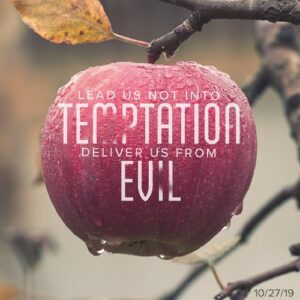 our broader communities, and even the world.
our broader communities, and even the world.
This is a big reason why God provided the commandments, not just the ten we hear about, but all 613 that are found through the first five books of the Bible. Frankly, God looked at what God had created and saw that it was no longer “good.”1 People needed direction because from the very moment of creation they made bad decisions, from Adam and Eve to Cain to Noah’s sons to Lot’s wife, to Abraham, to Joseph’s brothers…all the way down to Moses; where God said, “If you can’t figure it out yourselves, I’ll put it in black and white. I’ll make abundantly clear what is right and wrong!” And even then, we couldn’t figure it out and do what was right.
All of this brings me back to Paul, who goes on in his letter to the Romans to talk about the solution to this dilemma: God’s grace, through Christ, sets us free. And this freedom comes in two forms.
- The first freedom is forgiveness. God understands the dilemma and our weakness. God understands that, ultimately, we are not capable of perfection on our own. We will sin. Therefore, God provides forgiveness to allow us back into God’s “good graces” and a hope for our future.

- The second freedom is freedom from sin: That, through the power of the Holy Spirit we are offered the strength that we need to change, to not only know what is right and wrong, but also have the ability to follow through. Because often following through on what is right takes tremendous will and faith.
So how about it? Where are you struggling to do what is right these days? How are you finding it difficult to make healthy decisions about your life and your actions? Where are you falling short?
Are you aware that God offers you grace? That God forgives your transgressions? And, in the same breath, God calls you to grow, to improve, to change your ways? And not only that, but offers to help you do so?
Try to think of one area in your life this week that you would like to bring about change and make the conscious decision to find the help you need (within or outside yourself) to make that a reality.
1 The other, and often cited as primary, reason that God created the commandments was to set the Hebrews apart from the rest of the world’s population. Anyone could look at them and their actions and know they were different. They were doubly blessed. Blessed because they were chosen as an example and blessed because the benefits of following the law (i.e., making good decisions) was a healthy life and society.
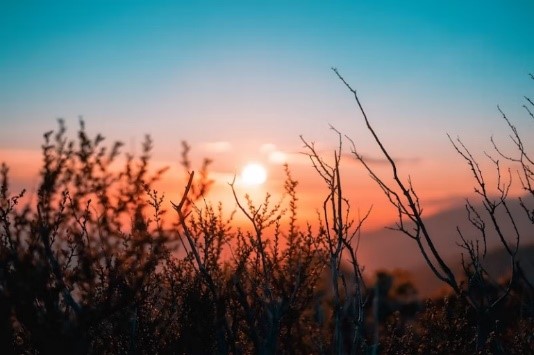
Rest
by Rev. Racquel Ray
Assoc. Minister of Congregational Life
The day is new each morning. The year is new each January. In these cycles of renewal, God’s revelations unfold before us and we become co-creators of the newness. I am not normally one who makes New Year’s resolutions. But, this year I have committed myself to continue the journey toward wellness that I wrote about and preached about last spring.
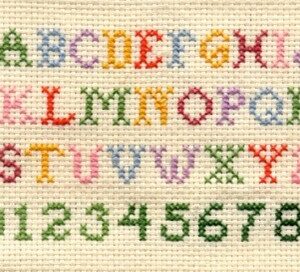 The Apostle Paul wrote, in Corinthians 6:12, “All things are lawful for me, but not all things are beneficial. All things are lawful for me, but I will not be dominated by anything.” The verse is titled ‘Glorify God in Body and Spirit’. I’ve often felt this verse should be cross-stitched, framed and hung in the kitchen as a reminder to make healthy food choices. Perhaps the version from The Message is clear, “Just because something is technically legal doesn’t mean that it’s spiritually appropriate. If I went around doing whatever I thought I could get by with, I’d be a slave to my whims.”
The Apostle Paul wrote, in Corinthians 6:12, “All things are lawful for me, but not all things are beneficial. All things are lawful for me, but I will not be dominated by anything.” The verse is titled ‘Glorify God in Body and Spirit’. I’ve often felt this verse should be cross-stitched, framed and hung in the kitchen as a reminder to make healthy food choices. Perhaps the version from The Message is clear, “Just because something is technically legal doesn’t mean that it’s spiritually appropriate. If I went around doing whatever I thought I could get by with, I’d be a slave to my whims.”
 As I recover from covid and its lasting symptoms, I’ve returned to what I know to be true for my wellness. I have gone ‘back to basics’ for my own self-care: hydration, nutrition, rest, movement, sunshine, and fresh air. Years ago, I made a wellness ‘first aid kit’; a list of the things I need to feel and be healthy. When I face a health challenge, I return to that basic list and begin [again] with step one resetting to basic health. Step one always involves basic nutrition and chopping vegetables. So, I have a wellness mantra, ‘Time to chop vegetables’ when I don’t feel well.
As I recover from covid and its lasting symptoms, I’ve returned to what I know to be true for my wellness. I have gone ‘back to basics’ for my own self-care: hydration, nutrition, rest, movement, sunshine, and fresh air. Years ago, I made a wellness ‘first aid kit’; a list of the things I need to feel and be healthy. When I face a health challenge, I return to that basic list and begin [again] with step one resetting to basic health. Step one always involves basic nutrition and chopping vegetables. So, I have a wellness mantra, ‘Time to chop vegetables’ when I don’t feel well.
If we are to truly glorify God in our bodies and spirits, we need a wellness mindset. If we take Paul’s advice we would understand that not all things are good for us. Though we are capable of doing great things and accomplishing great feats, should we?
I’ve been asking myself this question since Christmas. In the weeks leading up to Christmas, I remember saying to my family each night, ‘just one more event/meeting/email/service…’ then I can rest. And, day after day, the list kept growing. By Christmas Day, I was exhausted. And though we cannot always prevent ourselves from being exposed to illness, we can take steps to keep ourselves from being rundown when we do cross paths with a contagious virus.
 The Southern New England Conference has been studying clergy wellness over the past year and has found that most clergy members are rundown. Many are retiring or changing roles. Many are exhausted and seeking extra medical and mental health support. Some are resetting their wellness routines. Some are falling flat and struggling. The conference has suggested that churches encourage their clergy to take an EXTRA two weeks of renewal in 2023; time to rest – just rest.
The Southern New England Conference has been studying clergy wellness over the past year and has found that most clergy members are rundown. Many are retiring or changing roles. Many are exhausted and seeking extra medical and mental health support. Some are resetting their wellness routines. Some are falling flat and struggling. The conference has suggested that churches encourage their clergy to take an EXTRA two weeks of renewal in 2023; time to rest – just rest.
I know that community exhaustion is not limited to clergy! We’re all tired! Parents who have juggled distance learning, covid pauses, teacher absences, child care center closures, working from home, and caregiving for their families are tired. Spouses whose loved ones are at high-risk for illness due to underlying health conditions and are the person who gets the groceries and does the public facing chores and errands are tired. Those of us who are grieving the loss of loved ones are tired. Healthcare workers, educators, hospitality, small-business owners, and care givers are tired. We are all tired.
 So, as God reveals what we will co-create for 2023, let us remember that though we are capable of ‘doing it all’ we do not have to. Though we can make it to one more meeting it may not be beneficial for us. Though it may be possible it may not be profitable to our wellness. Beloved, this year, take time to rest. Take time to chop vegetables. Take time to renew, take a walk, breathe, drink water. And let us commit to one another to make space for each other to rest, glorifying God in Body and Spirit.
So, as God reveals what we will co-create for 2023, let us remember that though we are capable of ‘doing it all’ we do not have to. Though we can make it to one more meeting it may not be beneficial for us. Though it may be possible it may not be profitable to our wellness. Beloved, this year, take time to rest. Take time to chop vegetables. Take time to renew, take a walk, breathe, drink water. And let us commit to one another to make space for each other to rest, glorifying God in Body and Spirit.
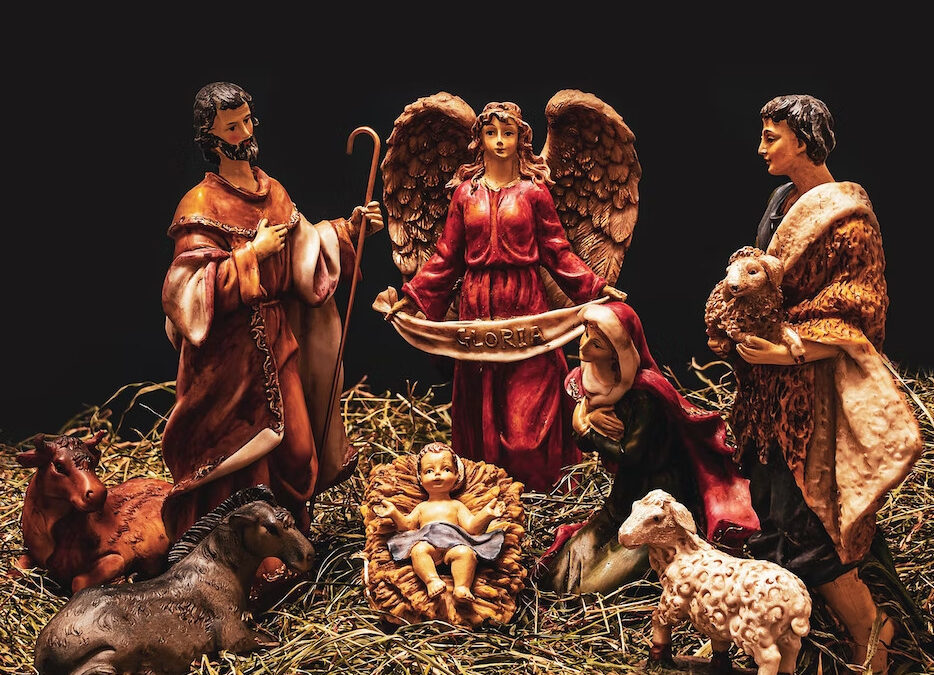
What Child Is This?
by Rev. Dale Azevedo, Sr. Minister
What is your favorite Christmas carol or Christmas hymn? There are so many good ones out there. And, I suppose what makes them “good” depends on so many different things. For some of us it is the musicality of the hymn. For others, the words and the message. For others still, it is the memories they invoke. For me, it is often the emotion that they bring to bear when I hear them or sing them.
If I had to pick one, it would likely be “What Child Is This?”
What child is this, who, laid to rest
On Mary’s lap is sleeping?
Whom angels greet with anthems sweet
While shepherds watch are keeping?
This hymn nearly always brings tears to my eyes. I’m not quite sure why. I didn’t grow up hearing it or singing it. In fact, my family never went to church on Christmas Eve or during the holidays (except for that one year…). We never went to church at all, so the emotion that these hymns bring up in me are all later on in life. Maybe I fell in love with “What Child Is This?” when Elizabeth and I were having children? Maybe I recall singing it while holding one of my precious children in my arms one Christmas? I can’t say for sure. But it always brings me to that tender place of love, warmth, and comfort.
are all later on in life. Maybe I fell in love with “What Child Is This?” when Elizabeth and I were having children? Maybe I recall singing it while holding one of my precious children in my arms one Christmas? I can’t say for sure. But it always brings me to that tender place of love, warmth, and comfort.
Another one I love is “Joy to the World.” This is because for 25 of the last 27 years I have picked it as the final hymn of the Christmas Eve Service of Lessons and Carols. Yup…It’s my go to hymn to sing after reading John’s proclamation that “The light shines in the darkness and the darkness does not overcome it!” This is a joyous moment for me because it means two things: 1) Jesus has come into the world to redeem us; and 2) the Christmas Eve services are almost over and I will soon be able to go home and start celebrating Christmas with my family.
Of course, the closing hymn of the lessons and carols service is always “Silent Night.” There is something special about the quietness of that moment, after I have just shared my Christmas reflection, while the light is slowly being spread around the darkness of the sanctuary, and we begin to softly sing that beloved melody. In my first church we were blessed to have a member of the choir who was German. A few special years, she started the song off with a solo, singing the first verse in its original tongue. It was beautiful!
 Then there is “Deck the Halls.” I wouldn’t mind never singing that one again. I think it is because I find it too hard to sing. Some of those fa-la-la-la-la‘s are just too high for me. Either that, or there are just too many of them.
Then there is “Deck the Halls.” I wouldn’t mind never singing that one again. I think it is because I find it too hard to sing. Some of those fa-la-la-la-la‘s are just too high for me. Either that, or there are just too many of them.
And what about “Pat-a-pan?” My kids can’t stand it. That’s because they felt it seemed to haunt them wherever they went every Christmas. They either had to play it in band, or Jesse and her dear friend Sam would play it in church as a flute-harp duet, or it was non-stop on the radio or in the mall. Me, I love it! I’m perfectly happy finding a long version of it on Spotify and playing it on repeat, over and over. Huh…maybe that’s why the kids can’t stand it…what do you think?
Finally, I’ll mention Noel, by Joan Baez. This isn’t a song or carol, but an album. It is a collection of classic Christmas carols and they each hold a dear spot in my heart. I think it was my first adult Christmas album (actually a CD). I probably bought it 30 years ago during my first Christmas with Elizabeth. Maybe I even bought it in college. Anyway, my mother was a big Joan Baez fan so this album brings together Christmas,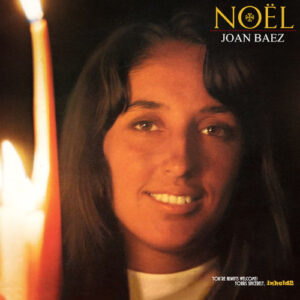 faith, my mother, my childhood, and my wife. Can you get any better than that?
faith, my mother, my childhood, and my wife. Can you get any better than that?
So what about you? What songs speak to you at Christmas? Why are they important to you? Or why do they move you? If you want, and you have a minute, let me know. Send me a quick text or email and let me know what carols you love. I’d love to hear from you and get to know you better in this little, but intimate, way.
Merry Christmas to you!
This, this is Christ the King
Whom shepherds guard and angels sing
Haste, haste to bring him laud
The babe, the son of Mary

God is Here – Even When…
by Rev. Racquel Ray,
Assoc. Minister of Congregational Life
Water dripped from my soaked hair, coat soaked through, shoes sloshing, and glasses covered with rain droplets as I fumbled with my keys to open the church door. The rain and wind had kicked up, gale warnings and downpours threatened the Wednesday night commute. Why had we decided to have church so late in the evening? And mid-week at that! For a time, I thought no one would come out in this weather.
Entering the church and turning on lights I could hear the wind pelting the old steeple. Creaking timbers and rattling windows sending sounds of age and history. How many storms? How many Advent and Christmas seasons has this old church weathered? How many Baptisms and Funerals? I dried my hair with the freshly purified air from one of our air filter machines. Pealing off wet layers, I wondered who would be offended if I were barefoot during the service – my shoes were wet and cold. I crawled under the huge Frasier fir tree recently added to the chancel to plug in the lights; the smell of evergreen filling my senses and needles stuck to my wet clothes and hair.
lights; the smell of evergreen filling my senses and needles stuck to my wet clothes and hair.
The window candles lit the sanctuary through the shadows of the Norfolk Island pines so carefully curated and decorated along the windowsills. Ambient light from the iconic flood lights which light outside of the church cast shadows of tidy squares along the pale grey walls from the old wooden sashes. I began to breathe deeply of evergreen and ambient sacred stillness.
I wondered about the Christmas Story we were about to share. Gabriel’s announcement to such a young girl, no older than our youth group kids. Mary’s assent to Gabriel’s message that she would bear the Messiah. Mary, Theotokos – the God Bearer. How did she trust so easily? How was she so brave?
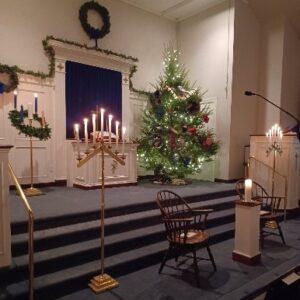 As others arrived, we turned on the lights and set them to just bright enough to see and traverse the sanctuary safely. One by one, wet and wind-blown, people gathered in the stillness of sacred space. On the Advent wreath, one candle was lit for the first week of the season of preparation for the Nativity of our Saviour. Seven-set candelabras flanked the ministers’ Windsor chairs giving just enough light to read by as we gathered in quiet. “Thank You for coming out in this weather” I say to guests with warming affection in my Spirit. How blessed we are to gather in this sacred space.
As others arrived, we turned on the lights and set them to just bright enough to see and traverse the sanctuary safely. One by one, wet and wind-blown, people gathered in the stillness of sacred space. On the Advent wreath, one candle was lit for the first week of the season of preparation for the Nativity of our Saviour. Seven-set candelabras flanked the ministers’ Windsor chairs giving just enough light to read by as we gathered in quiet. “Thank You for coming out in this weather” I say to guests with warming affection in my Spirit. How blessed we are to gather in this sacred space.
The church; the Body of Christ. The babe announced by Gabriel’s visit. The Messiah foretold by ancient prophets, by John the wilderness voice, and by Elizabeth the first evangelist to recognize and proclaim the presence of the God within Mary’s womb. Blessed are you among women and blessed is the fruit of your body!
And yet we, here in the body of Christ – the church are each facing 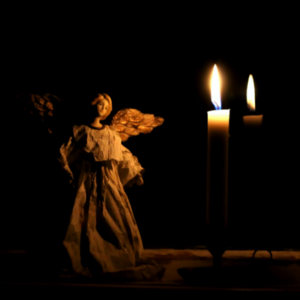 the challenges of humanity in this season. Many of our members are in the midst of agonizing grief wondering how a loving God could allow so much pain. Many are facing impossible physical and mental wellness barriers. Some are in the middle of final and exams. Many are facing struggles to fund heating bills and grocery bills. And now ‘Christmas’?! We learn someone is in the emergency department as we gather. And someone is in the intensive care unit. And yet, here we have gathered in the stillness of the sanctuary to hear from the Sacred. Where are you God? Where is the promised Emmanuel – God with us – in our pain?
the challenges of humanity in this season. Many of our members are in the midst of agonizing grief wondering how a loving God could allow so much pain. Many are facing impossible physical and mental wellness barriers. Some are in the middle of final and exams. Many are facing struggles to fund heating bills and grocery bills. And now ‘Christmas’?! We learn someone is in the emergency department as we gather. And someone is in the intensive care unit. And yet, here we have gathered in the stillness of the sanctuary to hear from the Sacred. Where are you God? Where is the promised Emmanuel – God with us – in our pain?
We settle into the quiet stillness of the service. Breathing in, breathing out. Centering and becoming present. As soft music plays we breathe and realize God is here. God is in the tempest. God is in the storm, the wind, the rain, the swirling leaves, and yes, even in the grief, the cancer, the depression, the anxiety, the budget, the exams, the hospital, and in the stillness. Emmanuel. God is with us. Jesus entered the human timeline 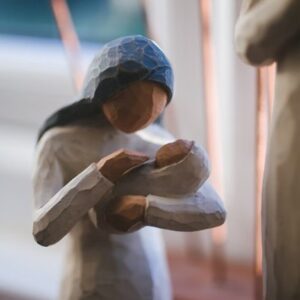 through the consent of a young woman and remains within us still.
through the consent of a young woman and remains within us still.
God is here with us in history, in future, and in present. Even in our tempest. Even in our stillness. God is present. And in the impossible, in the season of busy-ness and of requests for our ‘end of year donations’, our attention, our resources of time, talent, and treasure, we are called to turn to that presence. We are called to find ways to find God. Emmanuel – God is with us. The Messiah, the Saviour, love itself came to us in the midst of our travails. As Mary labored and angels descended, love came. LOVE is here. Love is with us. Emmanuel – God is with us.

Where do the flags go?
by Rev. Dr. Dale Azevedo, Sr. Minister,
with assistance from Rev. Racquel Ray,
Assoc. Minister of Congregational Life
A month or so ago, we had a veteran visiting us in worship. He quickly noticed that our sanctuary flags were not following proper U.S. flag etiquette. Our American flag stood tall adjacent to the pulpit while the “Christian” flag hung above the piano. According to the US Code, the American flag is supposed to be placed “behind the speaker” and “to the speaker’s right.” Ours was to the left.
This gentleman brought his concern to a few of our members who eventually raised it to Racquel and me. Racquel and I shared a few good discussions on the issue and quickly realized that, although we weren’t too far off on our responses, we approached the issue from different perspectives. Therefore, we thought it might be fun to share these perspectives with you in a joint blog having each of us share our own thoughts in turn.
Racquel – A Veteran’s Perspective
Jesus says, “This is my commandment, that you love one another as I have loved you. No one has greater love than this, to lay down one’s life for one’s friends.” (John 15:12-13) The call to service in the United States armed forces was rooted in this theological praxis. It still informs my ministry to this day.
I am not a pacifist. As Christians we have a spectrum of examples of peace and war. Jesus advised Peter to drop his sword and advised his followers to turn the other cheek. And yet, Jesus also set an example of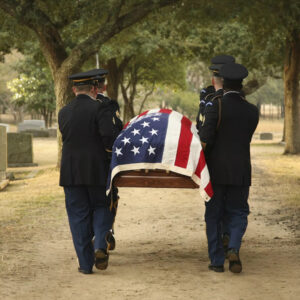 active resistance to temple business practices. Rev. Dr. Martin Luther King Jr. exemplified passive resistance and yet preached justice in the face of violence. I am of the theological mindset that I am compelled toward service even if that means facing violence. Many times, my service has called me to be afraid and do it anyway. Whether military service, chaplain during a pandemic, or greeting a protester outside of the church, I feel strongly about being there for others even in the face of fear.
active resistance to temple business practices. Rev. Dr. Martin Luther King Jr. exemplified passive resistance and yet preached justice in the face of violence. I am of the theological mindset that I am compelled toward service even if that means facing violence. Many times, my service has called me to be afraid and do it anyway. Whether military service, chaplain during a pandemic, or greeting a protester outside of the church, I feel strongly about being there for others even in the face of fear.
The call to serve in the face of fear permeates many military members’ mindset. The idea that Christianity mandates pacifism creates a dynamic of leaving military service to non-Christians. In a world where war exists, to me, it seems unreasonable to leave military service to all of our siblings of other belief systems. I chose to serve because I am a Christian and felt it was my duty and my honor to do so.
Military service members swear an oath when they enter service. The oath includes a vow to support and defend the Constitution of the United States and obey the orders of those appointed over them. As part of the basic training indoctrination process, they learn flag etiquette and are required to salute during the National Anthem, the playing of Taps, and at the raising and lowering of the American Flag. Service members are not required to recite the Pledge of Allegiance to the flag as their service Oath is a higher pledge. The memorial flag presented at a Veteran’s funeral is earned on behalf of a ‘grateful nation’. The symbols of the United States: The American flag, the eagle, patriotic songs are all representations of the nation but are not the focus of the American service member’s oath.
So, the flag is a symbol of the nation and a memorial for service members. It represents the ideals of the nation which ought to include liberation, freedom,
justice and the pursuit of happiness. We are reminded, in church, of the right to freedom of assembly, speech, public assembly, religion, and hopefully the pursuit of happiness.
We recently learned that our flags’ positions in the church needed to be reversed. According to the current flag etiquette protocols, the American flag ought to be to the speaker’s right in a place of prominence and the denominational flag needed to be to the speaker’s left.
I have ministered in churches where placement, movement, or the absence of flags in the church were divisive. Some congregations do not want flags. Some do. I appreciate the flag in church in honor of the loved ones lost in service to this nation, in honor of the sacrifices made, and the memorials that each veteran, family, and service member holds in sacred remembrance. And if we display a flag in church, beloved, we ought to place it correctly.
Dale- A Minister’s Perspective
Oh, I’ve been down this road before! It often isn’t pretty. Placement of the American flag in worship can be a passionate and contentious issue. Given how divided and tense our country is right now, I’m not sure I would choose to address this issue at all. However, as it has been brought up, it certainly requires a reflective and compassionate response.
On the surface, the US Flag code seems unequivocal in its position: in a public forum, the flag is to be placed behind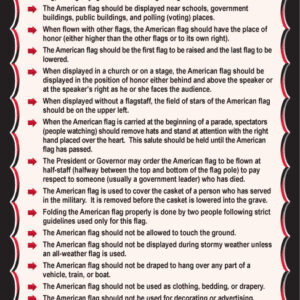 and to the right of a speaker. However, as I have researched this topic before, there are some arguments for an alternate interpretation. The flag code also states that the flag ought to be placed in the “the place of honor”, then lifts “to the right of the speaker” as a clarification. However, one could argue that having the flag place adjacent to the pulpit is a place of greater honor than on the other side of the chancel behind the piano. This could be a matter of interpretation.
and to the right of a speaker. However, as I have researched this topic before, there are some arguments for an alternate interpretation. The flag code also states that the flag ought to be placed in the “the place of honor”, then lifts “to the right of the speaker” as a clarification. However, one could argue that having the flag place adjacent to the pulpit is a place of greater honor than on the other side of the chancel behind the piano. This could be a matter of interpretation.
Additionally, the US Naval code states that while onboard a ship and during a service of worship the “Christian or Jewish pennant” may stand in the place of prominence to the right of the American flag. This, again, opens the door for some manner of interpretation of the proper placement of the American flag in a sacred space (while one must also recognize that we are neither in the US Navy nor aboard ship!).
It is also worth pointing out that in many Christian traditions, Roman Catholicism being the most prominent one, the American flag (or any national flag for that matter) is never allowed in worship at all. In the Roman Catholic tradition this is because the land in which a Roman Catholic church stands is considered an extension of the Vatican and not of the nation in which it resides. In protestant circles this tradition often carries because, according to scripture, we, as Christians, are reminded that we are members of a greater kingdom, the Kingdom of God.
Of course, that latter point is potentially moot, as we are not discussing whether the flags should be removed, but rather where they ought to be placed. However, it does raise the question of whether a Biblical perspective might also be relevant when discussing the placement of flags in a place of worship.
perspective might also be relevant when discussing the placement of flags in a place of worship.
All this leads me to the final crux of my argument. What is the will of the congregation in this matter? What does their faith lead them to decide when it comes to placing the American and “Christian” flags in their sanctuary?
It is possible that the flags were in their present location for specific reasons. Perhaps the congregation has discussed and debated this issue in the past, and the present location was the determination of the body that this was the best expression of their faith.
Or perhaps the flags were just placed as they are by mistake. Who knows?
For me, this decision is one that ought to be made intentionally by the congregation with clear knowledge of the US flag code AND an understanding of their faith as it pertains to one’s allegiance with their nation in respect to their allegiance to God. Fortunately, in this country, we have the freedom to answer this question as we choose. And as Congregationalists, we further have the freedom to do as we will in our own space.
Conclusion
In the end, Racquel and I decided to inquire of both the Church Council and some long-time members of the congregation if there was any known reason or tradition behind the placement of flags in our sanctuary. What we discovered in our brief research is that 1) no one was really aware of which flag was placed where, 2) 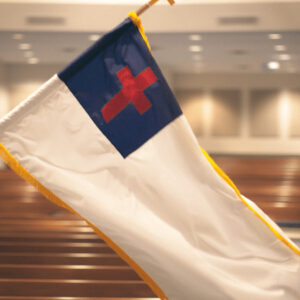 no one had given it any thought, and 3) no one could recall any reason for the flags’ current placements. So, this week Racquel and I decided to swap the flags to reflect the US flag code out of respect for those who expressed concern. This actually provides the American flag its place of honor to the right of the speaker and the “Christian” flag its place of honor adjacent to the pulpit.
no one had given it any thought, and 3) no one could recall any reason for the flags’ current placements. So, this week Racquel and I decided to swap the flags to reflect the US flag code out of respect for those who expressed concern. This actually provides the American flag its place of honor to the right of the speaker and the “Christian” flag its place of honor adjacent to the pulpit.
Ironically, after all of this, when Racquel placed the American flag behind the piano, she noticed that there was cord hanging from its pole as well as a hook placed in the wall at the same relative height as the cord. This hook apparently helps to keep the flag upright when placed in the holder, suggesting that this is the intended placement of the American flag all along! We have no idea when, how, or why they were switched. Our only guess is that it happened the last time the sanctuary was painted…
Go figure!
Note: I have placed the word Christian in quotation marks in reference to the “Christian” flag as there actually is no official Christian flag. The flag we use was apparently created in the 1800’s for a Sunday School program in Pennsylvania and has since been adopted by many churches around the country as the “Christian” flag.

The Food We Eat
by Rev. Racquel Ray,
Assoc. Minister of Congregational Life
I’ve been thinking a lot about the food we eat. In the spring of this year, I preached about the need for wellness as we restore our communities past the covid pandemic. Our discussions around wellness resulted in this summer’s walking group. Spending early mornings in nature with friends was delightful to the soul.
 There is a principle in the wellness journey of connecting actions, thoughts, and feelings. The more we do an activity, the more we think about it, and the more we process our feelings. These three are connected in a cycle. The more we feel the more we think. And the more we think and feel, the more we act.
There is a principle in the wellness journey of connecting actions, thoughts, and feelings. The more we do an activity, the more we think about it, and the more we process our feelings. These three are connected in a cycle. The more we feel the more we think. And the more we think and feel, the more we act.
Over the past several months, I have wondered how this applies to the other aspects of wellness: financial, spiritual, relational, emotional, and physical. The adage ‘fake it till you make it’ presents aspects of challenging mental heal implications. But, it does ring true for stopping behaviors that do not serve our wellbeing and adding activities that do. Taking a walk leads to thinking about the benefits of walking and the feelings of wellness, strength, vitality. Going to church leads to thinking about the benefits of being surrounded by a loving community of believers and the feelings of belonging, welcome, and purpose.
 I wonder how this applies to nutrition and our local food systems. As grocery prices continue to soar, we turned to growing more of our own food in the backyard garden. We have been deliberate about harvest and preserving our bounty. I have spent some time returning to local farms to fill in what we have not grown. Local bakeries, local butchers, local dairies, and local orchards are of interest. To accompany my thoughts, actions, and feelings around our local food systems, I’m also reading The Omnivores Dilemma by Michael Pollan. (Pollan, 2007)
I wonder how this applies to nutrition and our local food systems. As grocery prices continue to soar, we turned to growing more of our own food in the backyard garden. We have been deliberate about harvest and preserving our bounty. I have spent some time returning to local farms to fill in what we have not grown. Local bakeries, local butchers, local dairies, and local orchards are of interest. To accompany my thoughts, actions, and feelings around our local food systems, I’m also reading The Omnivores Dilemma by Michael Pollan. (Pollan, 2007)
It seems the dilemmas we face beyond shopping politically are practical. How can we afford to feed our families and what will they eat? How can folks with modest income afford groceries? How can food and nutrition affect our health and wellness: thoughts, feelings, and actions?
I am reminded of Genesis 2: “Now the Lord God had planted a garden in the east, in Eden; and there he put the man he had formed. The Lord God made all kinds of trees grow out of the ground—trees that were pleasing to the eye and good for food. In the middle of the garden were the tree of life and the tree of the knowledge of good and evil. A river watering the garden flowed from Eden; from there it was separated into four headwaters…The Lord God took the man and put him in the Garden of Eden to work it and take care of it…The Lord God said, ‘It is not good for the man to be alone. I will make a helper suitable for him’…Adam and his wife were both naked, and they felt no shame.” (Genesis Ch. 2 paraphrased)
The Genesis story is familiar to most of us. And yet, if we take a close look, we can see ribbons of action, thoughts, feelings running through God’s provision and Adam’s process. Adam was present in the garden with every tree that was pleasing to the eye and good for food and fresh water. Adam’s action was to tend the garden. As Adam tended the garden, Adam thought he was lonely and God provided a helper. Adam and Eve worked together in the garden and felt no shame.
 It seems that as humans, we are provided every plant for our nourishment and fresh water. We are to care for our environments which provide that food and drink. And, our environments are both pleasing to the eye and good for our bodies. And when we do that in partnership with each other we feel no shame. In fact, when we are attentive to the world around us and the provisions around us we find community and contentment.
It seems that as humans, we are provided every plant for our nourishment and fresh water. We are to care for our environments which provide that food and drink. And, our environments are both pleasing to the eye and good for our bodies. And when we do that in partnership with each other we feel no shame. In fact, when we are attentive to the world around us and the provisions around us we find community and contentment.
Looking toward our own community’s food systems we see a few local farms and a few farm stands. We can meet our farmers and may even be able to pick our own food. We can grow food in our yards or in pots or planters. We can even grow food on our windowsills! At our local farms and farmer’s markets we can meet other people who share our concerns for the local foods systems. We can feel a sense of connection with both the earth and the community; as though we are a part of that cycle. The food we eat is one part of our connectedness to God, Neighbor, and Self.


